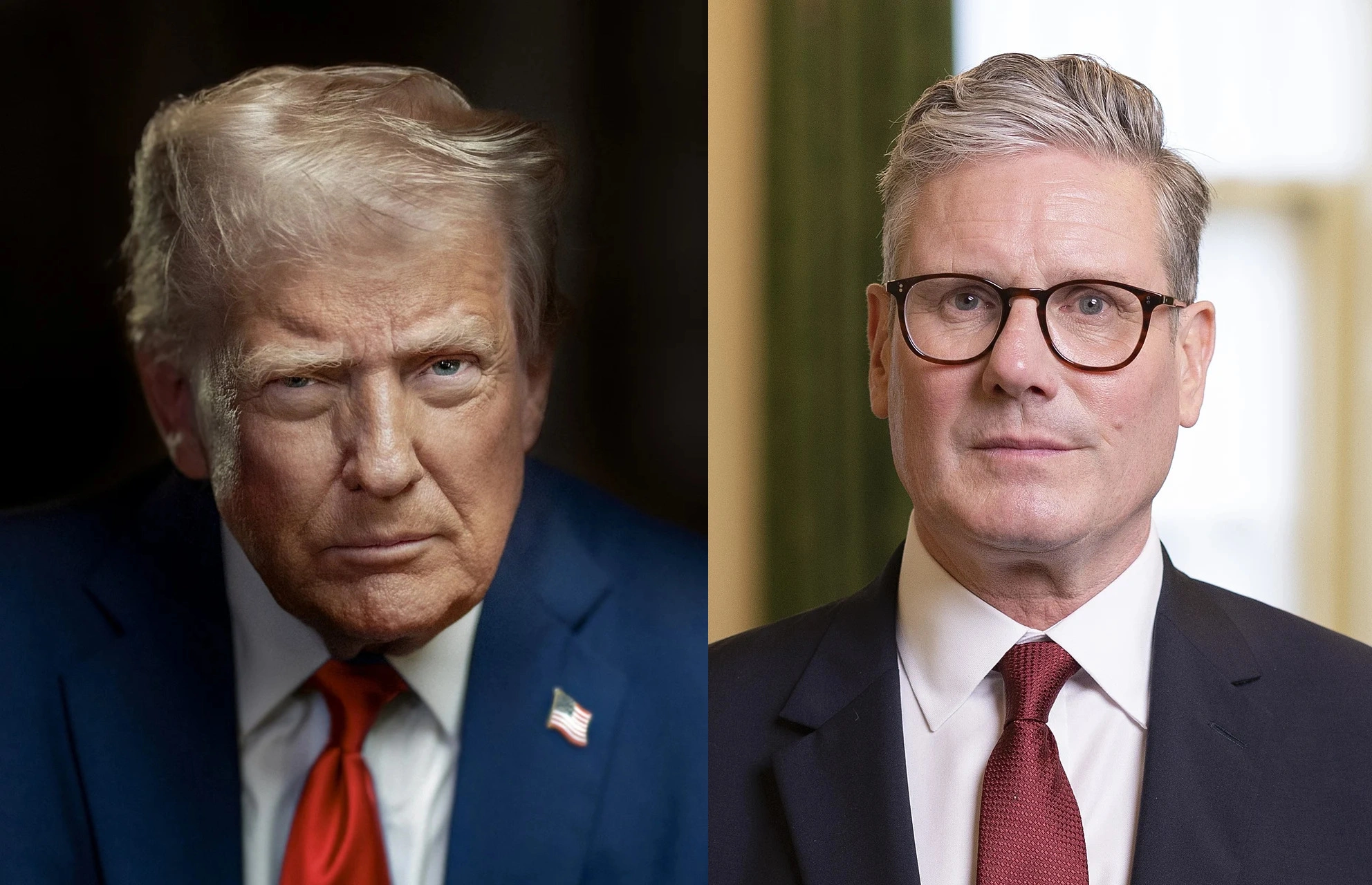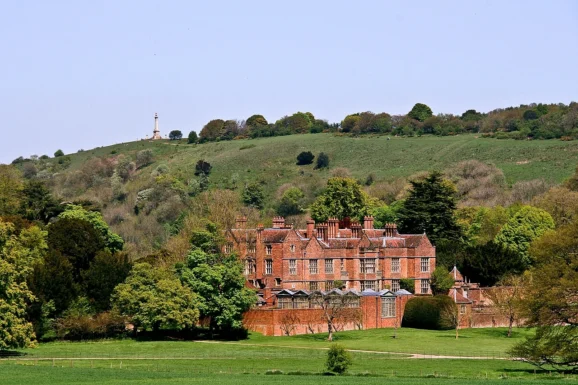UK and U.S unveil landmark tech pact with £250bn investment surge

John E. Kaye
- Published
- News, Technology

Britain and the United States have declared a “golden age” of technology, with Prime Minister Sir Keir Starmer hailing a £250bn State Visit investment surge as proof the UK is “punching above our weight” in science and innovation
Britain and the United States have pledged to “lead the next great technological revolution side-by-side” after signing a first-of-its-kind agreement on science and innovation, capped by a record £250bn wave of investment linked to President Donald Trump’s state visit to Britain.
The Technology Prosperity Deal was announced earlier this week and formally published on 18 September as a memorandum of understanding (MOU) between London and Washington.
It commits both governments to joint work on artificial intelligence, quantum computing and civil nuclear power, and follows a £31bn package of AI and tech investments unveiled by U.S firms earlier in the week.
At a business event at Chequers, Prime Minister Sir Keir Starmer hailed the agreement as “a generational step change in our relationship with the U.S” that would “shape the futures of millions on both sides of the Atlantic.”
Welcoming Trump for what he called “this unprecedented second State Visit,” Starmer told him: “It’s a great pleasure for me personally to welcome you to my home-from-home, here at Chequers. You are among friends.”
He added: “There is so much to celebrate between our two countries. By standing together in war and in peace, this bond is the very foundation of our security, our freedom, and our prosperity,” he said. “When it comes down to brass tacks, it is about leaders who respect each other, leaders who genuinely like each other, and the connections between our people, our families, our businesses.”
Trump, standing alongside him, called the UK “our first partner in defence, trade and now technology,” and said the deal would ensure the two nations “define this century together, just as we did the last.”
He praised Starmer as a “tough negotiator” and described the agreement as “one of a kind.”

Downing Street said the State Visit had been matched by an unprecedented wave of corporate pledges, with £250bn committed across sectors. Officials said U.S companies alone had put forward more than £150bn for projects in Britain, the largest package ever associated with such a visit.
Starmer said: “The deals and investments you are announcing today break all records. £250 billion flowing both ways across the Atlantic. It is the biggest investment package of its kind in British history – by a country mile.”
Technology heavyweights Microsoft, NVIDIA and Google confirmed billions of pounds in expansion plans, joined by a £100bn commitment over the next decade from private-equity giant Blackstone, £3.9bn from logistics investor Prologis, and £1.5bn from software group Palantir.
UK-based Nscale, Arm and Oxford Quantum Circuits also featured in the line-up, with ministers highlighting a “two-way street of capital, talent and innovation”.
London estimates that at least 7,600 jobs will be created directly, with more than 15,000 expected when regional projects are included, from an “AI Growth Zone” in the North East to nuclear initiatives across the country.
The MOU itself sets out areas of collaboration in detail, including flagship AI research programmes, shared computing resources and partnerships in medicine, biotechnology and space exploration. It says the UK and U.S were “expressing mutual interest in science and technology capabilities and standards to usher in the next Golden Age of Innovation to fortify freedom and prosperity for generations to come.”
Starmer presented it as a fusion of American capital with British ingenuity. “It shows the potency of this partnership: U.S capital and entrepreneurial spirit combined with British ideas and ingenuity,” he said. “The UK is one of the world’s largest economies – maybe not quite on the scale of the United States, I concede – but, my word, we punch above our weight. We have the only trillion-dollar tech sector in the west outside of the US, the best universities, the most Nobel Prizes – and we are proud of it.”
Officials said the dividends could include faster discovery of drugs and life-saving treatments through quantum simulation, cleaner and more reliable power from new-generation nuclear reactors, and a step-change in the compute capacity available to smaller firms.
NVIDIA said it would deploy 120,000 advanced GPUs in the UK, its largest European rollout to date, while OpenAI confirmed plans for “Stargate UK,” a supercomputing collaboration with Nscale and Microsoft.
Jensen Huang, NVIDIA’s founder and chief executive, said the UK was in a “Goldilocks position, where world-class talent, research and industry converge.” Sam Altman, chief executive of OpenAI, said the project would “help accelerate scientific breakthroughs, improve productivity and drive economic growth.”
The nuclear component of the deal, described in the text as heralding a “golden age of nuclear technology,” aims to slash licensing times, strengthen supply chains and boost joint R&D. Both sides are targeting full independence from Russian nuclear fuel by 2028.
At Chequers, Starmer linked nuclear power to households. “Of course tech needs energy,” he said. “So to fuel this revolution we have struck a new deal on civil nuclear power – generating energy for millions of homes and businesses, driving down bills on both sides of the Atlantic and driving up energy security.”
Liz Kendall, the UK technology secretary, said the partnership would “deliver good jobs, life-saving treatments and faster medical breakthroughs for the British people. Our world-leading tech companies and scientists will be working together to transform lives across Britain.”
The memorandum is not legally binding but commits both governments to set up a ministerial-level working group within six months and hold annual reviews to assess progress. Downing Street said it complements the UK-US Economic Prosperity Deal struck earlier in the year and reflects “shared values, complementary capabilities and coordinated policy approaches.”
Trump closed the session by telling the assembled business leaders: “This enduring connection is why I was thrilled that the United Kingdom was the very first country with which we made a historic trade deal — and now the very first with which we’ve made this historic tech deal. Together we are going to lead.”
Main images: Licensed under the Open Government Licence v3.0. Photo: Simon Dawson / No 10 Downing Street. Public domain / White House. Photo: Daniel Torok
RECENT ARTICLES
-
 WATCH: Red Bull pilot lands plane on moving freight train in aviation first
WATCH: Red Bull pilot lands plane on moving freight train in aviation first -
 Europe eyes Australia-style social media crackdown for children
Europe eyes Australia-style social media crackdown for children -
 These European hotels have just been named Five-Star in Forbes Travel Guide’s 2026 awards
These European hotels have just been named Five-Star in Forbes Travel Guide’s 2026 awards -
 McDonald’s Valentine’s ‘McNugget Caviar’ giveaway sells out within minutes
McDonald’s Valentine’s ‘McNugget Caviar’ giveaway sells out within minutes -
 Europe opens NanoIC pilot line to design the computer chips of the 2030s
Europe opens NanoIC pilot line to design the computer chips of the 2030s -
 Zanzibar’s tourism boom ‘exposes new investment opportunities beyond hotels’
Zanzibar’s tourism boom ‘exposes new investment opportunities beyond hotels’ -
 Gen Z set to make up 34% of global workforce by 2034, new report says
Gen Z set to make up 34% of global workforce by 2034, new report says -
 The ideas and discoveries reshaping our future: Science Matters Volume 3, out now
The ideas and discoveries reshaping our future: Science Matters Volume 3, out now -
 Lasers finally unlock mystery of Charles Darwin’s specimen jars
Lasers finally unlock mystery of Charles Darwin’s specimen jars -
 Strong ESG records help firms take R&D global, study finds
Strong ESG records help firms take R&D global, study finds -
 European Commission issues new cancer prevention guidance as EU records 2.7m cases in a year
European Commission issues new cancer prevention guidance as EU records 2.7m cases in a year -
 Artemis II set to carry astronauts around the Moon for first time in 50 years
Artemis II set to carry astronauts around the Moon for first time in 50 years -
 Meet the AI-powered robot that can sort, load and run your laundry on its own
Meet the AI-powered robot that can sort, load and run your laundry on its own -
 Wingsuit skydivers blast through world’s tallest hotel at 124mph in Dubai stunt
Wingsuit skydivers blast through world’s tallest hotel at 124mph in Dubai stunt -
 Centrum Air to launch first European route with Tashkent–Frankfurt flights
Centrum Air to launch first European route with Tashkent–Frankfurt flights -
 UK organisations still falling short on GDPR compliance, benchmark report finds
UK organisations still falling short on GDPR compliance, benchmark report finds -
 Stanley Johnson appears on Ugandan national television during visit highlighting wildlife and conservation ties
Stanley Johnson appears on Ugandan national television during visit highlighting wildlife and conservation ties -
 Anniversary marks first civilian voyage to Antarctica 60 years ago
Anniversary marks first civilian voyage to Antarctica 60 years ago -
 Etihad ranked world’s safest airline for 2026
Etihad ranked world’s safest airline for 2026 -
 Read it here: Asset Management Matters — new supplement out now
Read it here: Asset Management Matters — new supplement out now -
 Breakthroughs that change how we understand health, biology and risk: the new Science Matters supplement is out now
Breakthroughs that change how we understand health, biology and risk: the new Science Matters supplement is out now -
 The new Residence & Citizenship Planning supplement: out now
The new Residence & Citizenship Planning supplement: out now -
 Prague named Europe’s top student city in new comparative study
Prague named Europe’s top student city in new comparative study -
 BGG expands production footprint and backs microalgae as social media drives unprecedented boom in natural wellness
BGG expands production footprint and backs microalgae as social media drives unprecedented boom in natural wellness -
 The European Winter 2026 edition - out now
The European Winter 2026 edition - out now



























